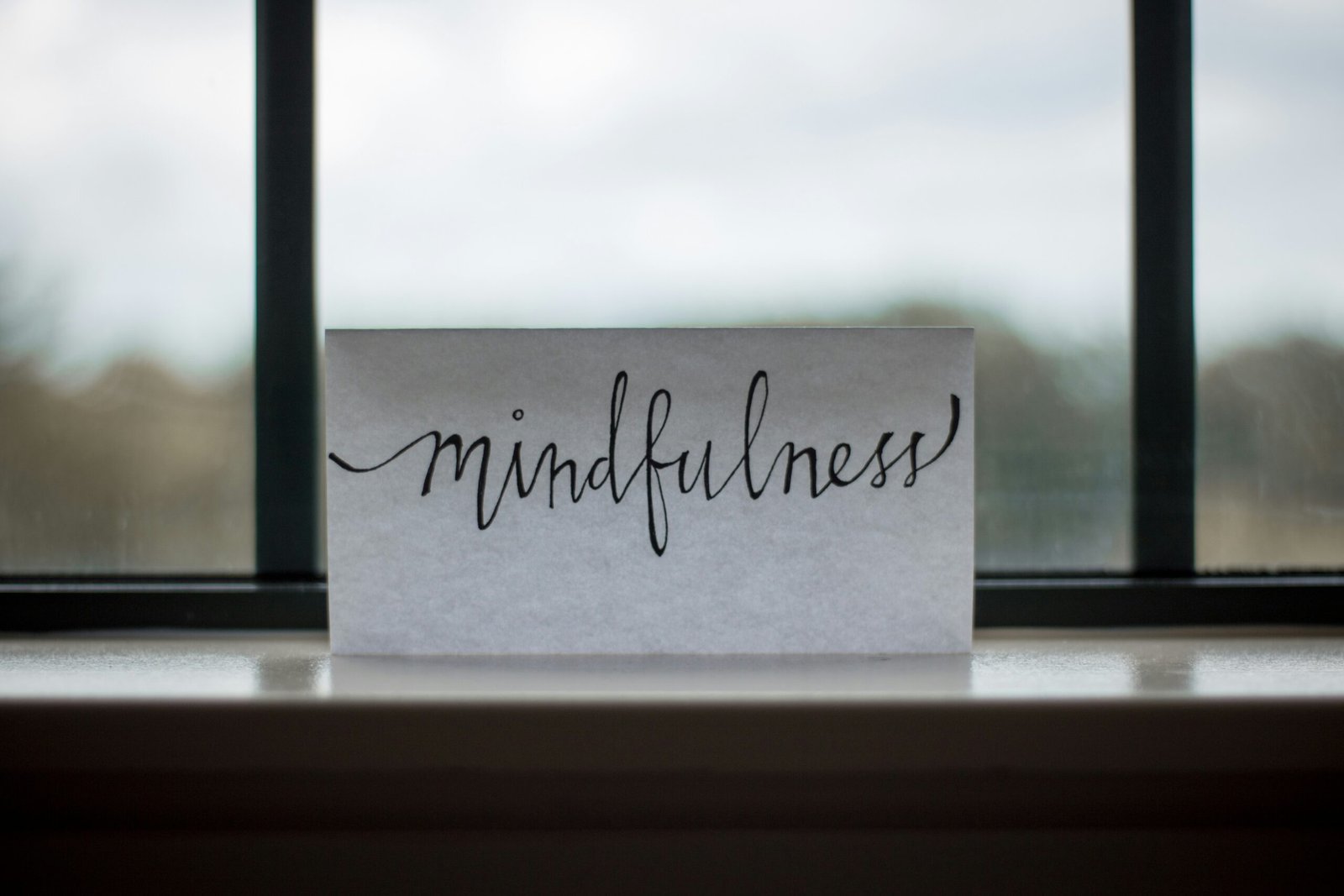Understanding Self-Reflection
Self-reflection is a powerful tool for relationship improvement, allowing individuals to introspectively examine their thoughts, feelings, and actions. This cognitive process provides deeper insights into emotional responses and behavioral patterns, which are essential for personal growth. Engaging in self-reflection helps individuals identify personal strengths and weaknesses, often through probing questions about past experiences, relationship dynamics, and emotional triggers, facilitating a better understanding of oneself and one’s relationships.
Psychologically, self-reflection creates awareness of one’s internal state by encouraging exploration beyond surface-level feelings to uncover underlying motivations and desires. This exploration is particularly beneficial in the context of love and relationships. Reflecting on past romantic experiences helps individuals discern what worked well and what didn’t, offering crucial insights for future relationship improvement. This self-awareness is foundational for meaningful changes in behavior and attitudes towards love.
Moreover, self-reflection fosters emotional intelligence, enabling individuals to articulate their feelings better and empathize with their partners. This emotional attunement can enhance communication dynamics within romantic relationships. By processing emotions through self-reflection, individuals are equipped to approach their loved ones with greater understanding, leading to improved relational outcomes. Thus, it is evident that self-reflection plays a pivotal role in not only personal growth but also in fortifying one’s romantic bond, reinforcing the importance of introspective practices as tools for enhancing self-relationship awareness.
The Link Between Self-Reflection and Relationship Success
Self-reflection plays a pivotal role in enhancing the dynamics of romantic relationships, providing insights that contribute to their overall success. Various studies have shown that individuals who regularly engage in self-reflection exhibit greater emotional intelligence, which is fundamental to fostering healthy connections with partners. By analyzing their own thoughts, feelings, and behaviors, individuals create a foundation that enables them to understand not only themselves but also their partners on a deeper level. This heightened awareness can lead to more effective communication and conflict resolution in relationships.
Research conducted by psychologists suggests that self-reflection allows individuals to identify negative patterns within their relationships, which may impede growth and satisfaction. By recognizing these patterns, they can actively work towards rectifying them, ultimately improving the quality of their love lives. Additionally, self-reflection encourages individuals to assess their contributions to the relationship, fostering accountability and promoting a more balanced partnership. Consequently, partners who engage in this practice are often more empathetic and receptive to one another’s needs.
Moreover, expert opinions emphasize that the process of self-reflection nurtures emotional intelligence, enabling individuals to manage their emotions effectively. Emotional intelligence is a critical element in navigating the complexities of romantic entanglements, as it allows partners to respond to conflicts constructively rather than react impulsively. Studies have also pointed out that higher emotional intelligence is correlated with increased relationship satisfaction. As individuals engage in self-reflection to enhance their emotional awareness, they are better equipped to nurture their partnerships, leading to a more fulfilling love life.
Through self-reflection relationship improvement becomes more attainable, as individuals can recognize areas that need enhancement and take actionable steps towards fostering healthier connections. Ultimately, this introspective practice not only benefits personal growth but also paves the way for thriving romantic relationships.
Common Challenges in Love Life That Self-Reflection Can Address
In the realm of romantic relationships, individuals frequently encounter a myriad of challenges that can hinder emotional connection and overall satisfaction. One of the most prevalent issues is communication breakdown. Misunderstandings often arise due to ineffective communication styles, leading to frustration and resentment. When couples fail to express their thoughts and feelings clearly, they can become trapped in a cycle of misinterpretation and conflict. Self-reflection is essential in this context as it allows individuals to analyze their communication patterns, identify areas for improvement, and foster a more open dialogue.
Another significant challenge faced in love relationships is trust deficits. Issues such as dishonesty or betrayals can erode the foundation of a partnership. When trust is compromised, individuals may find themselves grappling with insecurity and anxiety, which can further strain the relationship. Engaging in self-reflection enables individuals to explore their insecurities and evaluate their role in these dynamics. By understanding their feelings, they can address underlying anxieties and work towards rebuilding trust through transparency and consistent behavior.
Recurring arguments also plague many relationships, often stemming from unresolved issues or misunderstandings. Couples may find themselves locked in a perpetual cycle of conflict over the same topics, causing emotional exhaustion. Through self-reflection, individuals can uncover the root causes of these disagreements and recognize patterns in their behavior that contribute to ongoing tensions. This awareness provides a pathway to implementing constructive strategies for conflict resolution, allowing partners to confront issues collaboratively rather than defensively.
By engaging in self-reflection, individuals can significantly enhance their love lives. Addressing communication barriers, trust issues, and recurring arguments lays the groundwork for healthier interactions, leading to a more fulfilling relationship experience.By recognizing these common challenges in their love life, individuals can take proactive steps toward improvement and cultivate deeper connections.
Techniques for Effective Self-Reflection
Engaging in self-reflection can significantly enhance your relationships, allowing for a deeper understanding of personal motivations and patterns. Various techniques can facilitate effective self-reflection, each catering to different preferences and lifestyles. One widely recognized method is journaling. This technique invites individuals to explore their thoughts and feelings on paper, enabling them to articulate their experiences and emotions regarding their romantic connections. By maintaining a reflective journal, individuals can trace their emotional journey, identify recurring themes, and unveil insights that support relationship improvement.
Meditation is another powerful tool for self-reflection. It encourages individuals to cultivate mindfulness and develop a heightened awareness of their thoughts and emotions. By dedicating time for quiet contemplation, one can observe feelings without judgment, providing the clarity necessary for understanding how personal experiences influence their love life. Guided visualizations also offer a structured approach to self-reflection, wherein individuals can imagine ideal scenarios or unresolved issues in their relationships. This technique promotes emotional processing and empowers individuals to envision potential outcomes, thereby fostering personal growth.
Structured self-assessment exercises provide an additional avenue for individuals seeking to enhance their self-reflection practices. These exercises typically involve questionnaires or prompts that encourage participants to evaluate their beliefs, values, and experiences regarding love and relationships. By critically examining these elements, individuals gain an awareness of areas that require attention for relationship enhancement. Through these diverse techniques, one can foster an effective self-reflection practice that aids in improving their romantic relationships. Engaging regularly in these methods not only supports personal development but contributes to healthier and more fulfilling connections with partners.
Practicing Vulnerability and Honest Self-Evaluation
Engaging in self-reflection is a critical component for enhancing one’s love life, particularly when it comes to practicing vulnerability and honest self-evaluation. Vulnerability often carries a stigma of weakness; however, it can serve as a foundation for profound understanding and connection within relationships. When individuals allow themselves to be vulnerable, they create an environment of safety and trust, where partners can openly share feelings, concerns, and aspirations. This openness fosters the emotional intimacy necessary for stronger connections.
Honest self-evaluation is essential in the self-reflection relationship improvement process. It involves examining one’s thoughts, behaviors, and motivations without masks or denial. Confronting uncomfortable truths about oneself can be a daunting task, yet it is crucial for personal growth and enriched relationships. By recognizing patterns in behavior, especially those that lead to conflicts or misunderstandings, individuals can work towards significant change. This practice not only enhances self-awareness but also encourages empathy towards one’s partner, cultivating a stronger bond and mutual understanding.
Moreover, embracing vulnerability entails acknowledging one’s imperfections and flaws. By accepting these aspects, individuals can approach their relationships with authenticity and compassion. This acceptance invites partners to reciprocate with their vulnerabilities, creating a reciprocal dynamic that is essential for sustainable emotional connection. As individuals learn to be honest about their needs and feelings, they pave the way for healthier communication and emotional support, both of which are vital for nurturing love.
In recognizing that vulnerability is not a weakness but rather a transformative strength, individuals can engage in meaningful self-reflection that leads to lasting relationship improvement. By committing to this journey of honest self-evaluation, they take pivotal steps towards fostering not just individual growth but also enhancing the overall quality of their partnerships.
The Role of Feedback from Partners
In the journey of self-reflection relationship improvement, the input from partners becomes a pivotal element. Engaging in open communication with a significant other allows individuals to gain insights that self-reflection alone may not provide. This dialogue fosters a deeper understanding of personal behaviors, motivations, and the dynamics that characterize the relationship.
Constructive feedback from a partner serves as a mirror that reflects aspects of one’s personality and actions that may go unnoticed. When a partner shares their perspective on certain behaviors, it illuminates areas that may require adjustment or modification. This feedback mechanism facilitates self-awareness, enabling individuals to identify patterns that contribute positively or negatively to the relationship. By embracing this feedback, individuals can engage in targeted self-reflection, which is instrumental in achieving relationship goals.
Additionally, the practice of soliciting and receiving feedback can strengthen the emotional bond between partners. When one expresses vulnerability by seeking opinions on their actions, it communicates a willingness to grow and adapt for the sake of the relationship. This openness often invites a reciprocation of honesty, paving the way for a more transparent and understanding partnership. In this environment, both individuals feel empowered to share their feelings, thoughts, and concerns without fear of judgment, leading to joint problem-solving and nurturing of the relationship.
Feedback is not merely about receiving critiques; it is about understanding how one’s actions affect the other person. It encourages individuals to reflect on their emotional responses and the ways they engage with their partner. Ultimately, combining self-reflection with active and receptive communication fosters an environment conducive to growth and enrichment, making room for profound personal transformation and a more fulfilling love life.
Setting Goals for Relationship Improvements
Establishing clear goals is essential for translating the insights gained from self-reflection into actionable steps that can significantly enhance your love life. By setting specific, measurable, achievable, relevant, and time-bound (SMART) goals, individuals can create a roadmap for their relationship improvement journey. This structured approach not only clarifies what is desired but also provides a framework for assessing progress over time.
Firstly, define what aspects of your relationship require improvement. Self-reflection can illuminate areas such as communication, emotional intimacy, or conflict resolution. Once these areas are identified, you can formulate specific goals. For example, instead of stating a broad intent like “I want better communication,” a specific goal would be “I will initiate a weekly check-in with my partner to discuss our feelings and concerns.” This specificity ensures accountability and clarity in your efforts.
Next, consider how you will measure success. In the context of self-reflection relationship improvement, measurable objectives could consist of frequency or quality indicators. For instance, monitoring how often you engage in meaningful conversations or the degree to which conflicts are resolved can provide tangible metrics to gauge progress. Additionally, by making these goals achievable, you promote sustained motivation; setting an overly ambitious target might lead to frustration and disengagement.
Furthermore, ensure that your goals are relevant to your personal situation and the dynamics of your relationship. Reflect on the mutual desires of both partners to maintain harmony and cooperation. Setting a goal that aligns with both individuals’ needs strengthens commitment to the process. Lastly, establish a timeline to evaluate your progress. Regularly revisiting your goals encourages ongoing self-reflection, allowing for necessary adjustments to your strategies and ensuring continued growth in your love life.
Monitoring Progress and Continuous Self-Reflection
After embarking on a journey of self-reflection aimed at enhancing relationship dynamics, it is crucial to systematically monitor the progress made. This process involves assessing the changes in individual behaviors and attitudes that stem from self-reflection insights. By evaluating these developments, one can determine the efficacy of the changes implemented and how they contribute to the overall health of the relationship.
A practical approach to monitoring progress includes keeping a journal, where thoughts and feelings about the relationship can be documented over time. This not only provides valuable insights into emotional patterns but also serves as a tangible record of personal growth. Regularly revisiting these journal entries can help individuals recognize themes or recurring issues, thereby highlighting areas requiring ongoing attention. Noting specific situations where new approaches were used can also serve as a benchmark for improvement, offering concrete evidence of positive change.
Another effective method for evaluating growth in relationships is through open and honest communication with partners. Engaging in discussions about each person’s perceptions and feelings can reveal insights that may not have been considered otherwise. By sharing experiences and feedback, both partners can identify strengths and weaknesses eluding their self-assessments, furthering the self-reflection process. Such dialogues reinforce the importance of accountability, as partners contribute to each other’s growth and development.
Furthermore, continuous self-reflection keeps individuals agile and adaptable in navigating their love life. Relationships evolve, and so do personal needs and desires. Regular self-assessment provides the necessary framework to adjust one’s behavior and mindset in accordance with these changes. Integrating ongoing self-reflection into daily life not only facilitates improvement but also nurtures deeper emotional connections, ultimately fostering a resilient bond between partners. Establishing this commitment aids in achieving sustained relationship improvement over time.
Success Stories: From Self-Reflection to Love Life Transformation
Many individuals have embarked on journeys of self-reflection that have significantly improved their love lives. One remarkable account is that of Sarah and John, a couple who had been married for over a decade but found themselves drifting apart. They decided to attend a workshop focused on self-reflection relationship improvement, which prompted them to engage in deep, honest conversations about their feelings and desires. This introspective journey allowed them to recognize unresolved conflicts and misunderstandings that had initially created a rift between them. By practicing self-reflection, they could articulate their needs and aspirations, reminding each other of the love that initially brought them together. The couple’s vulnerability led to a renewed intimacy that had been missing, transforming their relationship profoundly.
Another inspiring story is that of Mark, a single professional who struggled with forming meaningful connections. Frustrated with his dating life, he turned to self-reflection as a tool for personal growth. Mark kept a journal where he explored patterns in his dating behavior, identifying fears that often hindered his ability to commit. Through this introspective process, he identified the importance of vulnerability and learned to embrace authenticity. Eventually, he struck up a connection that was deeply rewarding. His self-reflection had reshaped his approach to love, fostering a healthier mindset that emphasized trust and connection over fear.
These stories exemplify how the practice of self-reflection can lead to transformative outcomes in romantic relationships. By dedicating time to explore one’s feelings and behaviors, individuals and couples alike can unveil deeper insights about themselves and their partners. Self-reflection relationship improvement acts as a powerful catalyst for growth, enabling individuals to break free from past patterns that may have held them back. Ultimately, reflecting on one’s inner world not only enhances personal well-being but also cultivates a more fulfilling love life.










